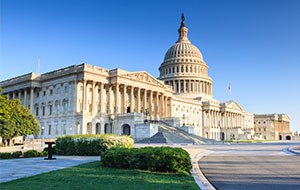The Washington Times (May 17, 2017)
President Trump made good last week on a promise to create a Presidential Commission on Election Integrity, and surely this was a promise kept that everyone could applaud. Who but cheats and frauds doesn’t like clean elections? Who doesn’t want his vote to count, and his vote not be canceled by someone ineligible to cast a ballot? This was something that would surely warm hearts at the Brennan Center for Justice and at the League of Women Voters.
But before a single hearing was called, before the first witness could testify, the commission was judged a fraud by the usual suspects who have never met an election-integrity statute they liked, no matter how reasonable.
The president of the Brennan Center for Justice called it “a sham and a distraction.” The president of the League of Women Voters said the commission was filled with “political ideologues with dangerous agendas.” Still others said it was something to suppress voting by minorities, the poor and the young who would be disposed to vote for Democrats.
Vice President Mike Pence was named to chair the commission, and that was bad enough. On the other hand, two members of the commission will be the Democratic secretary of state of Maine, Matthew Dunlap, and the Democratic secretary of state of New Hampshire, Bill Gardner. But what set liberal knees knocking from New York to Seattle was the appointment as vice chairman of one Kris Kobach, the secretary of state of Kansas, who is arguably the nation’s most ardent and effective foe of voter fraud.
Mr. Trump invited some of the skepticism with his assertion that as many as 3 million to 5 million fraudulent votes might have been cast last November and that with those illicit votes he would have won the popular vote as well as the vote in the Electoral College. He offered no more evidence than the Democrats loudly asserting that the Russians cooked the result of that presidential election.
Until now, the debate on election fraud has been based mostly on anecdotal evidence and conjecture, which is precisely why the Pence commission is needed. “To make broad statements like, ‘It’s not a problem, it doesn’t exist,’ that is factually impossible to [prove],” Mr. Kobach says. “So, what the commission is going to do is provide facts.”
Academic studies of voter fraud concluded the problem was relatively minor but its surveyors didn’t have access to the federal data the new panel will have. Homeland Security data that lists every legal immigrant and visa holder in the country will be compared against state voter rolls to detect noncitizens who are illegally registered to vote. The panel may inspect the Social Security death master files to ensure that the dead aren’t casting ballots (not only in Chicago, where corpses traditionally retain a lively interest in politics, but everywhere else).
Anecdotes are only anecdotes, but some of them have interesting facts to dispense. Putnam County, Florida, last week purged 16 persons from the voter rolls for voting illegally last November, and there’s a battle in the courts over the outcome of a sheriff’s race decided by exactly 16 votes.
In St. Louis, absentee ballots were used to deny the election of Bruce Franks Jr., an activist in the Black Lives Matter movement, and when he sued the judge ordered a new election. He won the second election with 71 percent of the vote.
Voter rolls can be breeding places for fraud. If, as partisan skeptics argue, there’s no such thing as widespread voter fraud, the new commission can settle the argument once and for all. Such an opportunity to find out should appeal to the skeptics. Or maybe they protesteth too much.






